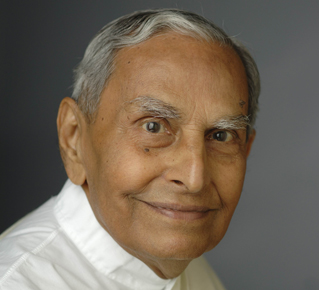Cheerfulness, it is said, is the greatest lubricant of the wheels of life. It diminishes pain, fights disease, mitigates misfortunes, lightens burdens and eases one's life

An increasing number of doctors, today, all over the world, are of the view that if a man is happy and light-hearted, cheerful and contented, positive and uncomplaining—isease will not draw close to him and, even if it does, - it will not stay with him for long.
"Laughter," says Dr Wilde, "provides a rhythmic movement of the abdominal muscles, gently massages the intestinal organs, improves digestion and blood circulation."
In the Harvard and Yale Universities of America and at the UCLA's Neuropsychiatric Institute at West Los Angeles and at several other research institutions, neurobiologists and medical researchers have confirmed that smiling, laughing and cheerful expressions set in motion happy waves in the mind and generate neuropeptides which re-vitalise the immunity system to prevent and fight disease. People who do not think of negative emotions of jealousy, envy and greed are healthier than people who live cloistered, unhappy lives.
New clinches and prescriptions given by modern physicians are being displayed in hospitals and clinics. "Laugh your way to health." "Laughter may be hazardous to your illness." "Cheerfulness is the new wonder drug" are some of them.
Doctors are of the view that our blood molecules contain receptors, which receive signals from the brain. If a person is happy, contented, the receptors transmit these signals of happiness, and the healing process is accelerated. This is a discovery of modern science: as you laugh more, you grow healthier. Jolly physicians, it is said, are better than pills.
Cheerfulness, it is said, is the greatest lubricant of the wheels of life. It diminishes pain, fights disease, mitigates misfortunes, lightens burdens and eases one's life.
The example is of a young girl who was brought to the hospital suffering from cancer. When she was being prepared to be taken to the operation theatre, she found the nurses sad and glum. "I know what you are thinking of," she said to the nurses. "But, let me tell you, I am not going to die so soon. God has other plans for me. I have spoken to Him and that is what He has told me." When she was taken to the operation theatre, she kidded the doctors, until she came under the influence of the anaesthetic. The doctors opened her up and found that cancer has spread so extensively that there was no use of performing the operation. They immediately stitched her up.
Give a hearty laughter at least three times every day—once before breakfast, once before lunch and once before dinneR
When she regained consciousness, she was told that she has only three to six months to live. She was advised to restrict her movements and live a relaxed, activity-free life.

The young woman was not taken in. "I have long cherished a desire to visit Switzerland," she said. "And even if it takes the life out of me, I will do it! Switzerland is said to be a heaven on earth. Before I visit God's heaven, let me see the beauty of the earthly heaven so as to be able to compare the two and decide which is the better one."
The doctors did all they could to dissuade her. "The strain of the trip to Switzerland will surely kill you," they said to her. However, when they found the young woman adamant, they said to her, "The climate of Switzerland and the change may do you good, though the strain of the travel may kill you."
Both the travel and the climate did her good. When she set out on the travel, she had to be taken in a wheel chair; when she returned, she walked with a straight gait, with a rose-tint on her cheeks. The doctors were amazed. Till this day she lives a happy life and bears testimony to the fact that if one lives happily, not focusing one's attention on disease and illness—health and strength, vigour and vitality will be ours.
It is said there would be no need of so many hospitals if only people could be happy, light-hearted and gay!
Cheerfulness has a therapeutic value. I would wish to pass on to you a few practical suggestions on how a person can keep up the spirit of cheerfulness.
Practical suggestion No.1 is: Get up in the morning with a smile on your face and the words, "Good morning, Lord!" on your lips. Those words are from the title of the book written by an American businessman, published several years ago. He says, he gets up with these words on his lips, every morning. He has been doing so over a long period and says that by merely doing so, he has added a new dimension to his life.
Practical suggestion No.2 is: Always look at the bright side of things. Everything has two sides, the bright and the dark or as I would wish to put it, the bright and the less bright. But it is the way you look at it that matters.
Practical suggestion No.3 is: Give a hearty laughter at least three times every day—once before breakfast, once before lunch and once before dinner. If you find it difficult to laugh, look into the mirror and make funny faces.
Cheerfulness is indeed a physical, mental and spiritual tonic.
by Dada JP Vaswani